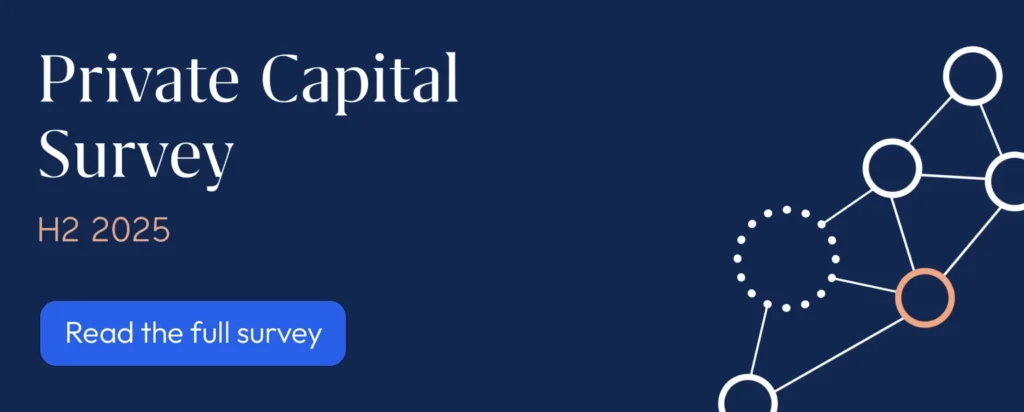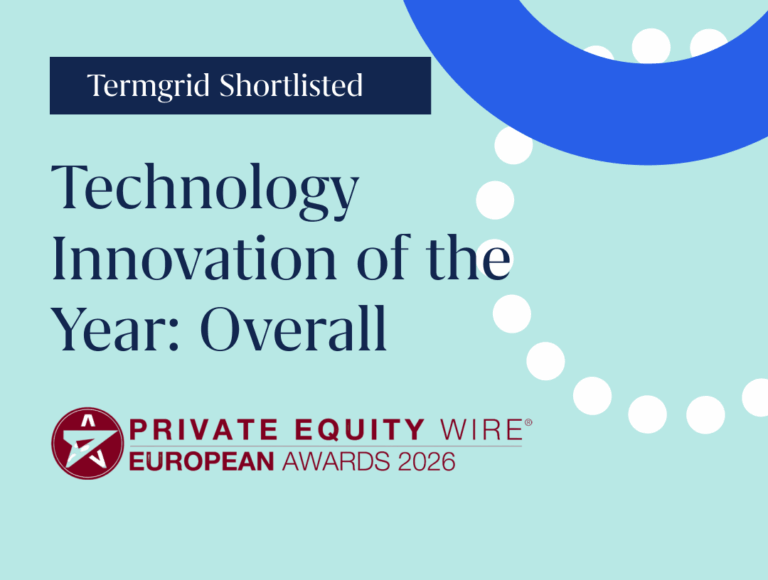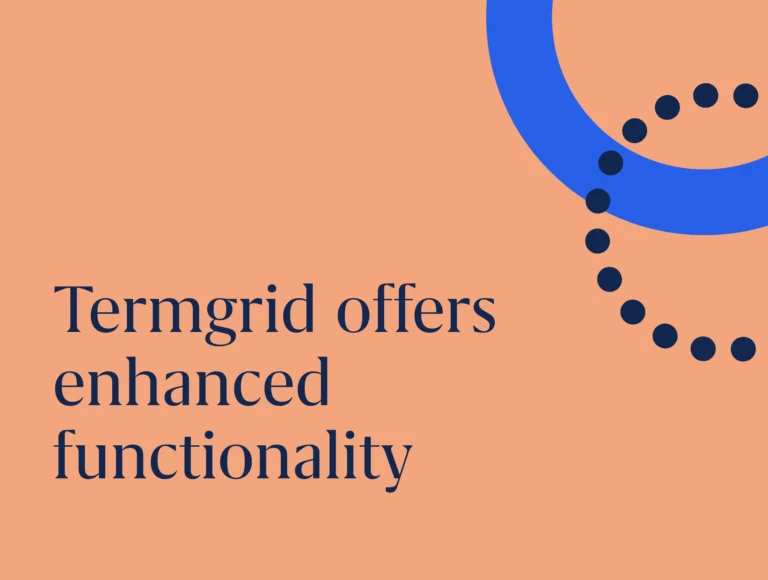Termgrid survey finds rising co-investment appetite, migration to mid-market, and growing tech adoption
Termgrid’s Private Capital sentiment survey shows a positive outlook despite fundraising challenges. Sentiment remains higher in the Americas where 59% see a positive outlook for the remainder of 2025 and an improved economy would be the biggest driver of dealflow (47%). In contrast, an improved economy is cited by just 34% of those in EMEA, alongside pressure to return funds to LPs as a driver of deals (32%).
Other key findings include:
- Fundraising is challenging but signs of optimism remain in EMEA and private credit
- The mid-market is overwhelmingly seen as an opportunity for large cap firms (77%)
- EMEA leads in covenant erosion, with EBITDA adjustments and leverage provisions most exposed
- Excel still prevails but innovators and early adopters improve deal processes with Termgrid
An improving economic outlook could nudge dealflow according to nearly half of respondents in the Americas (47%) while respondents in EMEA are split between the improved economy and pressure on GPs to return funds to LPs (34% and 32% respectively).
Fundraising remains challenging according to nearly two thirds (63%). However pockets of optimism remain with 32% of participants in EMEA and 35% of Private Credit funds seeing an improved outlook. Despite this challenged outlook for fundraising, increased appetite for co-investments means they are either being actively used (39%) or seeing moderate growth (36%).
Adept at adapting their strategies, large-cap firms are increasingly moving into the mid-market—motivated by competitive pressure and limited deal flow (36%) or attracted by the potential for broader market exposure (41%). As the mid market draws more sponsor and lender interest, covenant pressure is mounting with looser documentation now widespread (17%) or occurring selectively (48%). Even lower mid market participants (those working with companies with less than $50mn EBITDA) cite covenant pressure (47%). This pressure is especially pronounced in EMEA (73%), with EBITDA and leverage emerging as the primary areas of erosion.
Technology continues to be seen as a benefit to the sector with participants seeing the value of online NDAs, online grids, and datarooms overwhelmingly seen as impacting deal processes. Interestingly, these innovations are often thought of as for the sponsors but private credit funds are even more likely to appreciate the efficiencies created by digitizing workflows. Lastly while excel remains a stalwart of the sector, firms which are characterized as innovators or early adopters are increasingly likely to turn to Termgrid (46% and 24% respectively).
“Despite persistent fundraising challenges, our survey shows that private capital markets remain remarkably resilient. Firms are adapting through strategic shifts into the mid-market, growing availability of co-investments and flexibility in deal terms,” said Termgrid co-founder & CEO Dipish Rai.
“We are also delighted to see the growing awareness and appreciation of technology by all parties to debt finance processes. As adoption of technologies like Termgrid increases, more parties will feel the benefit of digitized workflows,” added Rai.
About the survey

Select private capital professionals were invited to take part in the survey in June 2025. The results reflect a broad range of views drawn from the Americas (53%), EMEA (44%) and APAC (3%).
Survey respondents reflect a broad array of private capital participants including sponsors (37%), private credit funds (29%), bank lenders (13%) and advisors – including debt advisors, law firms and corporate finance boutiques totalling 21% of respondents. Respondents from sponsor and private credit firms reported their assets under management as follows: over $10 billion (42%), $5–10 billion (11%), under $5 billion (39%), and evergreen structures (8%).
Stay in touch with all of our latest updates and articles. Sign up now.



